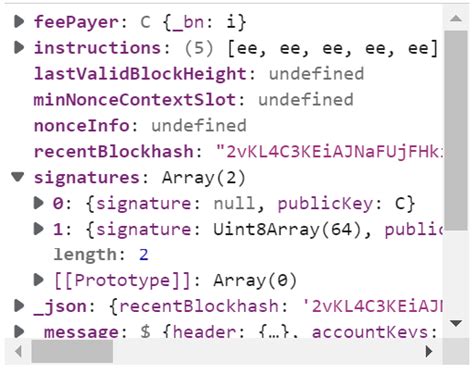Serialization events in Solan in web3.js 2.0
Sorana offers effective and scalable interaction with its net with the help of Web3.JS, JavaScript, which enables you to have free interaction between your application and Blockchain Solan. By creating applications that require interaction with the Sorana network, the serial stores are crucial for their storage, transfer and safe processing.
What is the serialization?
Serial in this context refers to the conversion of an object (in this case) into a format that can be easily recorded or transferred to a block chain. This process enables an efficient storage and event that enables interaction with the Solan network in different applications.
Web3.js Transaction Objects Conversion into serialized forms
To serialize the Solane events with web3.js 2.0, you need to create an object “Events and then call the ‘Serialize method (). This produces a serial format that can be used for storage or transfer.
Here is an example of how this is done:
Javascript
Const transaction = new event ({{{{
// The address, sender, recipient, etc. of your Sorana account.
Author: “Solan-1”,
to: “Solana-2”,
Information: 42,
});
Const SerializedTransaction = Transaction.Serialize ();
Console.log (serializedtransaction);
`
In the example above, the “event” is a new event that can be used for storage or transfer in Solani. The “Serialize ()” generation is a JSON chain that represents an event in the form of a blockchain Solan.
2.x Equivalent: Serial for Event Web3.js 2.0
1.x method is achieved by using the “JSONM” library, which simplifies the series of Sorana events and deerialization:
`Javascript
Const JSONM = Require (‘JSONM’);
Const transaction = new event ({{{{
Author: “Solan-1”,
to: “Solana-2”,
Information: 42,
});
Const SerialisozedtraSaction = JSONM.SERIALIZE (transaction);
Console.log (serializedtransaction);
`
In this example, “JSONM” creates an automatically serialized transaction that can be easily recorded or transferred to Solani.
conclusion

Serialization is a basic aspect of interaction with Blockchain Solan. Using web3.js 2.0 and related libraries such as “JSONM”, you can save, send and process events effectively online. This simplifies the development process for the applications of Solan’s data -demanding applications.
Example of use cases
– Save events information securely in a database or storage service.
– Send or show transaction information to the web application.
– Practice the intelligent contract function in the Sorana series and deerialization of transactions.
According to these steps, you can easily convert Web3.JS events into serial forms that can be saved, moved and handled safely in Solan.
